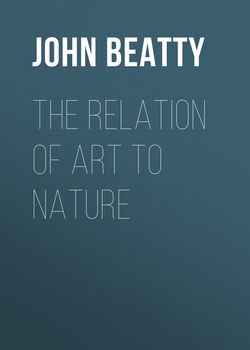The Relation of Art to Nature

Реклама. ООО «ЛитРес», ИНН: 7719571260.
Оглавление
John Beatty. The Relation of Art to Nature
Argument
The Artist and His Purpose
Ancient Conceptions of Art
Evidence of Painters and Sculptors
Opinions of Philosophers and Writers
Symmetry
Conclusion
Отрывок из книги
My purpose in writing this treatise is to establish, if this be found possible, a foundation for the belief that the art of the painter and sculptor is imitative, not creative; that the great masterpieces of art which have withstood the test of time rest firmly upon the supreme expression of character and beauty as these qualities are revealed in man and nature; that it is the mission of art to reveal and make plain these rare and lovely qualities. The truthful representation of these qualities constitutes a common factor which binds all great works together, a fact that is realized in every national gallery of art.
I have chosen to base my argument not upon theory or opinion but upon the evidence of eminent painters and sculptors who have produced great works of art.
.....
The opinion most widely accepted is that the artist creates beauty; that in some mysterious way, by virtue of a special gift, he does actually evolve from within his own consciousness forms of grace and loveliness; that however deeply the artist sinks himself in nature, art yet remains intensely individual; that in representing nature he adds to that which he secures from nature a personal quality which becomes the most important part of the work. This is the theory of art accepted very generally, but it is not supported by evidence.
The main purpose of this writing is, in fact, to establish by the evidence of the men who are quoted that their reliance has been solely upon nature and their success in exact proportion to their knowledge of nature and their ability to portray her predominant qualities. Let me repeat, however, that the ability to see and understand nature is dependent upon mental power. The man of limited mental power will see little; the one of great power will see much. The latter will apprehend the subtle, elusive qualities in a way impossible to the former. This, I know, is equivalent to saying that the great artist must bring to his task a great mind. This assumption is quite correct. A great mind is that power which is vaguely described as genius; it is what enables men to accomplish great things in every field of human endeavor. The question, therefore, is not whether the great artist possesses superior power, but rather how important are the inevitable traces of personal predilection or technical manner revealed in nearly all works of art as compared with the truthful presentation of the fundamental qualities the artist has discovered and undertaken to represent.
.....